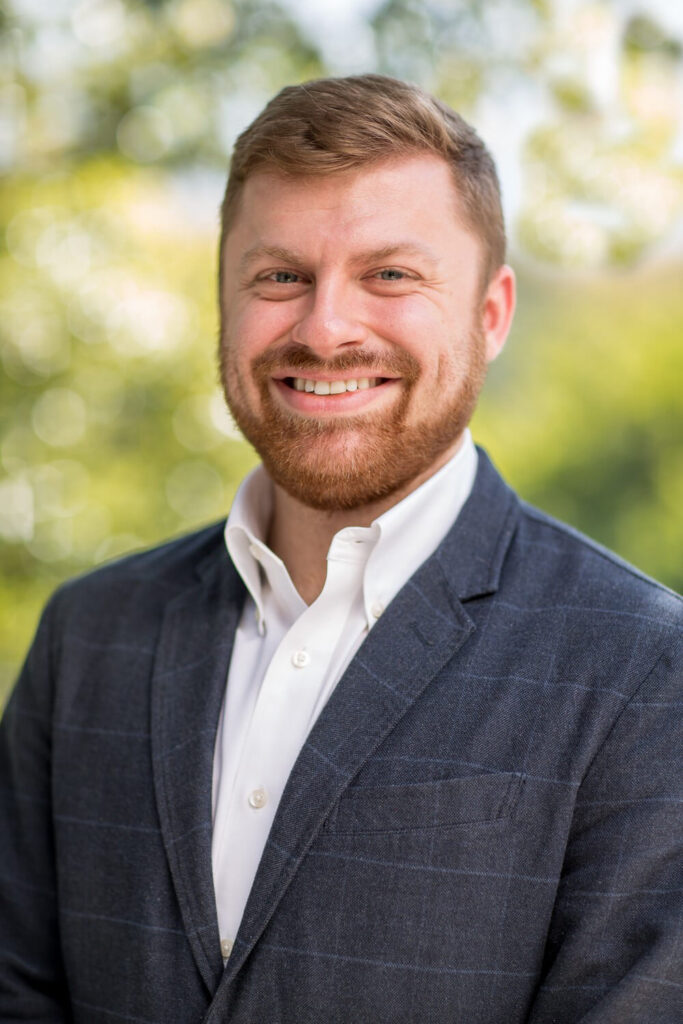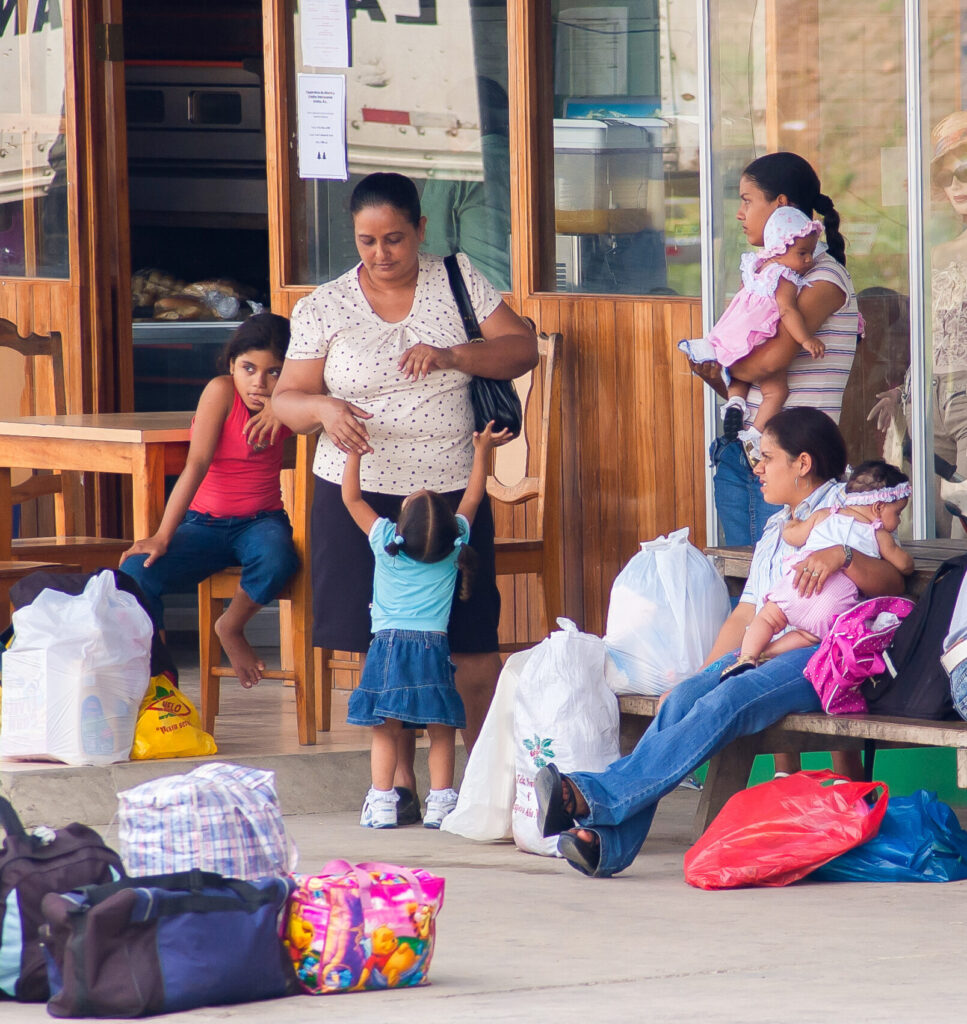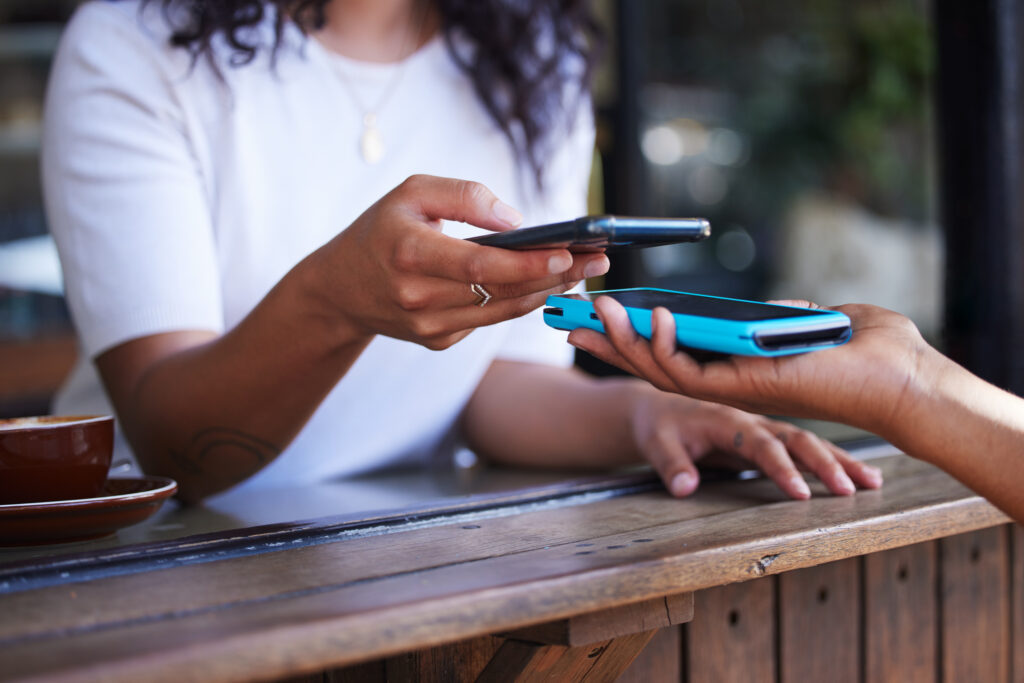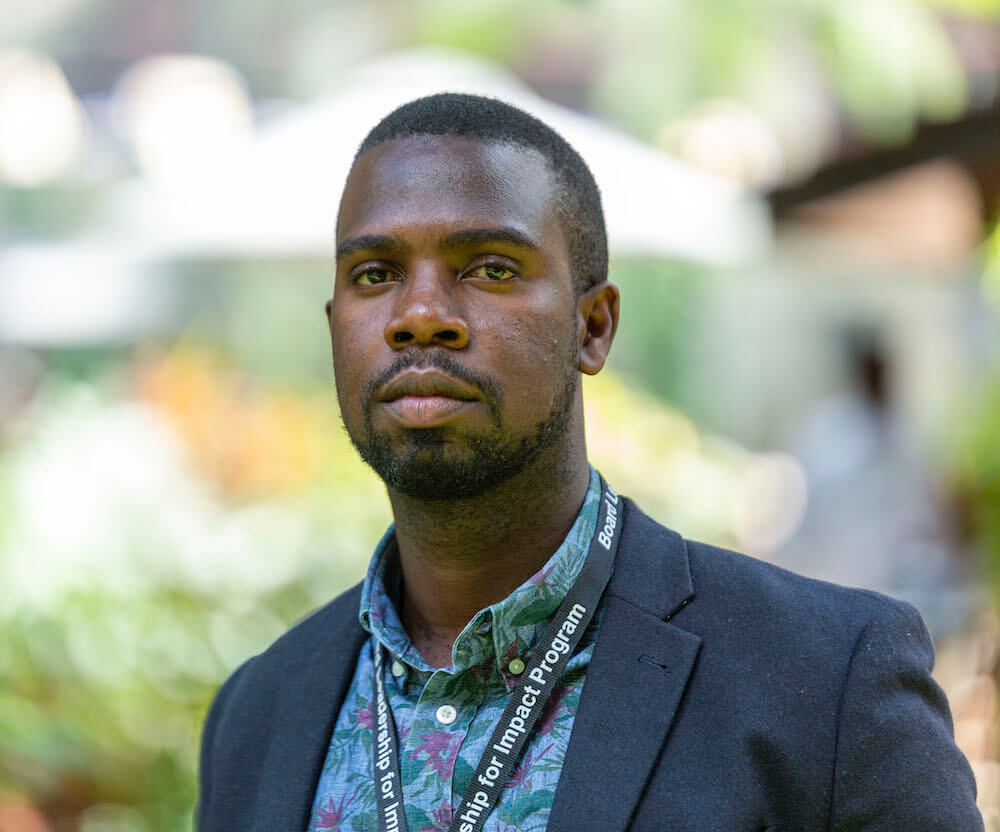
Dr. Kirengo, co-founder and CEO of Imara Mediplus Hospital, wasn’t your typical Board Leadership for Impact Program (BLI) participant. Rather than a financial inclusion organization, the social enterprise he leads is a multi-specialty healthcare facility focused on providing quality medical services to low- and middle-income earners living in smaller cities and towns in Kenya. Last fall, a time that feels so long ago now, Dr. Kirengo was interested in strengthening board leadership at Imara, so he and two colleagues attended BLI. In this Q and A, Dr. Kirengo discusses the state of health insurance in Kenya, the economic impact of the virus, and even homemade hand sanitizer production and locally sourced masks. He also provides invaluable advice to the financial inclusion community and general public on how to make workplaces safer.
Q: What are you seeing on the frontlines of the COVID-19 response in Kenya?
Dr. K: Over the past two weeks, we have seen an increase of 10 to 20 patients per day because people are scared. Patients come in with a sore throat or with symptoms the news is telling them is coronavirus. This has been difficult because we are trying to tell people to maintain social distancing. We’ve had to increase security to prevent people from coming in with visitors. We want people to come so we can treat them, but we need to limit our risk especially since we have limited protective equipment.
Because of the lack of supplies in Kenya, we’ve also had to experiment and build our own face shields and masks. Just recently, one of our suppliers increased prices by 5 times, so we are looking for alternative ways to buy or make our protective equipment. We’re also making hand sanitizer for the public and organizations to use. Another concern is with delays to insurance payments as the insurance companies see an insurgence in demand for payouts.
Q: What’s been the response to making and distributing hand sanitizer? Who have you distributed it to?
Dr. K: We experienced a price hike for sanitizers immediately when the first case of COVID-19 hit Nairobi. For example, one of our suppliers tried to sell us, for $100, a quantity we normally buy for $20. We realized quickly that this would be an unsustainable cost, so we talked to our pharmacist and nurses, ordered supplies and started making our own. Businesses around Embu, where we operate, told us they were facing similar challenges and risked receiving and using substandard hand cleaning material or none. So, we started making in surplus and selling to them. We have provided sanitizer to banks, hotels, restaurants and even individuals.
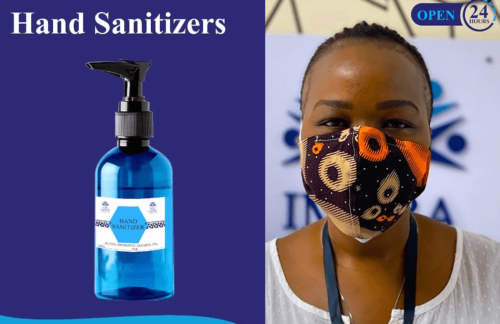
Q: Economically, how will the pandemic affect your patients and their communities? What might be the repercussions of this on Kenyan society?
Dr. K: There is less cash flowing through the economy. Everyone is saving money. Businesses are shut down due to lock down and curfew, as well as reduced footfall and increased cost of running businesses. We have seen a change in the spending habits of most of our patients. Currently, patient numbers for regular clinics have declined. We are largely attending only to urgent and emergent care cases.
A lot of companies and SMEs have either enforced salary pay cuts or laid off people. The changes will not be reversible in the near term. It will take a while for businesses and the economy to bounce back to where it was. Tourism, one of the major economic activities in the country, is nearly at a standstill. Things may get worse as we haven’t had a full shutdown, and this may still happen.
Q: Can you speak to insurance coverage? Do your patients have insurance? Is it public or private? And does this insurance adequately cover COVID-19 testing or treatment? How might this affect livelihoods?
Dr. K: Less than 25 percent of the population of Kenya is covered by health insurance. More than 90 percent of this insurance is the government run social insurance (National Health Insurance Fund, or NHIF). NHIF, however, provides very limited coverage and has low reimbursement rates, while private insurance that pays better has limited coverage and number of subscribers. With COVID-19, private health insurances had declined to cover their clients against the condition. This received a lot of negative publicity, so they reverted and accepted covering the condition, but only in government hospitals, where care is cheaper but generally considered to be of lower quality due to poor patient to staff ratios. Therefore, currently, COVID-19 is “exclusively” under government management. Some private hospitals are offering care, but I’m not sure how that is financed.
The challenge I foresee is the inability of the majority of the population to pay for COVID-19 healthcare needs.
The challenge I foresee is the inability of the majority of the population to pay for their healthcare needs when it comes to COVID-19, considering most businesses are shut down, experiencing tough financial times or have to cut salaries. For example, the cost of a single COVID-19 test in a private lab is $130. If positive, two more tests are needed that come out negative before a patient is released. On top of this, patients are placed in quarantine for two or three weeks. How does a common Kenyan afford this?
Q: What advice would you give leaders of financial service providers who are feeling the impact of the coronavirus on their employees, business operations, and clients?
Dr. K: For businesses that are lucky enough to work online or remote, just do it. For any organization, it is important to reiterate the basics:
- Wash your hands for at least 20 seconds or use hand sanitizer.
- Avoid touching your face, especially if you haven’t washed or sanitized your hands.
- Wear masks as appropriate. First and foremost, what people often forget about masks is that they are disposable. I’ve seen a lot of companies buy just one mask per staff member; however, staff should not be wearing the same masks day in and day out.
- If it is an N95 mask, and you are using it day to day, you should dispose of it after two days and get a different one.
- Surgical masks should be disposed after a few hours of use, maybe a day maximum.
- Wash your hands before and after touching the mask.
- Eye protection is key. Do your employees have glasses or something to protect the eyes from droplets? This could be an eye shield as well.
- Social distancing must be enforced. How are you ensuring distancing? If it is a bank, how are you training your employees to ensure a safe distance is kept? You can put stickers on the floor to highlight the appropriate distance and where people should stand. Remember a safe distance is 1 to 1.5 meters. This goes for security guards and staff as well.
- Anyone with symptoms may cause anxiety for fellow employees and clients, so you need to have a way to subtly and respectfully separate them from everybody else. You should know where to refer them to if they feel sick, so they can get the necessary attention. Send people home who are symptomatic.
- If there are people who can take leave now, have them take leave because most places are locked down and a curfew is in place, at least in Kenya.
- If you have SMS and message capability, you should be sharing information and highlighting the importance of social distancing and sanitation through your client channels.
